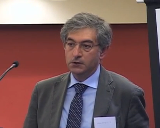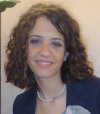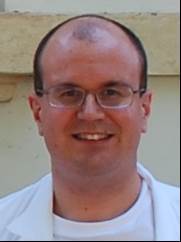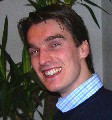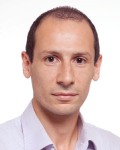Studying at the University of Verona
Here you can find information on the organisational aspects of the Programme, lecture timetables, learning activities and useful contact details for your time at the University, from enrolment to graduation.
Academic calendar
The academic calendar shows the deadlines and scheduled events that are relevant to students, teaching and technical-administrative staff of the University. Public holidays and University closures are also indicated. The academic year normally begins on 1 October each year and ends on 30 September of the following year.
Course calendar
The Academic Calendar sets out the degree programme lecture and exam timetables, as well as the relevant university closure dates..
| Period | From | To |
|---|---|---|
| 1° e 2° semestre (corsi annuali) PROFESSIONI SANITARIE | Oct 3, 2022 | Sep 30, 2023 |
| Lm Sio TN 1A 1S (Coorte 2022) | Nov 1, 2022 | Mar 31, 2023 |
| Lm Sio TN 1A 2S (Coorte 2022) | Apr 1, 2023 | Sep 30, 2023 |
Exam calendar
To view all the exam sessions available, please use the Exam dashboard on ESSE3. If you forgot your login details or have problems logging in, please contact the relevant IT HelpDesk, or check the login details recovery web page.
Should you have any doubts or questions, please check the Enrollment FAQs
Academic staff
 arianna.costantini@univr.it
arianna.costantini@univr.it
 jessica.longhini@univr.it
jessica.longhini@univr.it
 0461902665
0461902665
Study Plan
The Study Plan includes all modules, teaching and learning activities that each student will need to undertake during their time at the University.
Please select your Study Plan based on your enrollment year.
1° Year
| Modules | Credits | TAF | SSD |
|---|
2° Year activated in the A.Y. 2023/2024
| Modules | Credits | TAF | SSD |
|---|
Professional Laboratories (2nd year)
| Modules | Credits | TAF | SSD |
|---|
| Modules | Credits | TAF | SSD |
|---|
Professional Laboratories (2nd year)
Legend | Type of training activity (TTA)
TAF (Type of Educational Activity) All courses and activities are classified into different types of educational activities, indicated by a letter.
Care and organizational models of primary care (2022/2023)
The teaching is organized as follows:
Learning objectives
The teaching aims to deepen models for measuring and analyzing the health status, chronicity and socio-health needs of the population; to study the Chronic Care Model, principles, target concept, risk-based population stratification systems and response systems (network and community resources). HEALTHCARE ORGANIZATION AND POLICIES Module: Learning Outcomes: to acquire knowledge and tools necessary to understand the Italian healthcare and social-health system at the community level, with particular attention to its most recent evolution, which responds to demographic, socio-economic and political-institutional changes and its future prospects. MULTIDIMENSIONAL ASSESSMENT AND STRATIFICATION SYSTEMS Module: Learning Outcomes: To explore the predictive and proactive systems/models that allow, through a systemic and holistic vision, the analysis of methods and tools for stratification of the risk of fragility and the needs of the population (e.g. ACG), monitoring of risk factors of fragility and multidimensional assessment of conditions of chronicity, fragility and disability HEALTH DETERMINANTS, LIFESTYLES AND PUBLIC HEALTH ACTIONS Module: Learning Outcomes: to develop the ability to analyse the impact of health determinants in the community settings. To examine the role of lifestyles and existing monitoring and surveillance systems in relation to lifestyles. To identify public health actions to be implemented using a combined and integrated approach on three levels: community-oriented health promotion strategies, strategies at the level of the individual and effective person-centered interventions. MANAGEMENT OF RESOURCES AT THE COMMUNITY LEVEL Module: Learning Outcomes: To develop capacity to analyse structures and mechanisms for integrating primary care and community services network according to the national guidelines and the Chronic care model. UNDERSTANDING THE COMMUNITY AND WELFARE SYSTEMS Module: Learning Outcomes: to provide students with knowledge regarding the theme of welfare systems reform as part of the processes of social change which have involved European society and Italian society. The students will develop the capacity for a critical analysis of the changes that have occurred in the population as a whole and in the local communities, highlighting critical links and interdependent relationships for the transition to new welfare models.
Prerequisites and basic notions
not provided
Bibliography
Criteria for the composition of the final grade
in proportion between the various teachings of the module
Career prospects
Module/Programme news
News for students
There you will find information, resources and services useful during your time at the University (Student’s exam record, your study plan on ESSE3, Distance Learning courses, university email account, office forms, administrative procedures, etc.). You can log into MyUnivr with your GIA login details: only in this way will you be able to receive notification of all the notices from your teachers and your secretariat via email and soon also via the Univr app.
Orario lezioni
Ultimo aggiornamento orario lezioni
Documents
| Title | Info File |
|---|---|
|
|
pdf, it, 136 KB, 19/01/24 |
|
|
pdf, it, 126 KB, 30/10/23 |
|
|
pdf, it, 145 KB, 30/10/23 |
|
|
pdf, it, 634 KB, 22/08/23 |
|
|
pdf, it, 1453 KB, 07/02/24 |
Appelli d'esame
COMUNICATO UNITA' DI CRISI (agg. 2/05/2022)
Potranno chiedere di fare l’esame di profitto o di laurea a distanza solo le studentesse e gli studenti in isolamento in quanto positivi al SARS-CoV-2. La richiesta dovrà essere fatta inviando al docente il “Modulo per la richiesta di esame o sessione di laurea o diploma a distanza_rev.02/05/2022”
Guida ai programmi
.
Documents
| Title | Info File |
|---|---|
|
|
pdf, it, 1515 KB, 14/03/24 |
Attività di tirocinio e seminariali
Guida attività seminariali e tirocinio
Documents
| Title | Info File |
|---|---|
|
|
octet-stream, it, 14 KB, 06/11/23 |
|
|
octet-stream, it, 15 KB, 06/11/23 |
|
|
pdf, it, 1280 KB, 06/11/23 |
Prova Finale
Per essere ammessi alla prova finale occorre avere conseguito tutti i crediti nelle attività formative previste dal piano degli studi, compresi quelli relativi all’attività di tirocinio. La prova finale consiste nella redazione e dissertazione, davanti ad una Commissione di esame, di una tesi elaborata in modo originale sulla base di un lavoro di natura sperimentale o teorico-applicativa riguardante l’approfondimento di aspetti manageriali, di ricerca, formativi e di metodologie professionali avanzate specifiche del proprio ambito professionale. Lo studente avrà la supervisione di un docente del Corso di Laurea, detto Relatore, ed eventuali correlatori anche esterni al Corso di Laurea. Scopo della tesi è quello di impegnare lo studente in un lavoro di formalizzazione, progettazione e di ricerca, che contribuisca sostanzialmente al completamento della sua formazione professionale e scientifica. Il contenuto della tesi deve essere inerente a tematiche o discipline strettamente correlate agli obiettivi della Laurea Magistrale. La valutazione della tesi sarà basata sui seguenti criteri: livello di approfondimento del lavoro svolto e rigore scientifico, contributo critico del laureando, accuratezza della metodologia adottata, significatività della tematica sviluppata. Il punteggio finale di Laurea è espresso in centodecimi con eventuale lode e viene formato dalla somma della media ponderata rapportata a 110 dei voti conseguiti negli esami di profitto, con la valutazione ottenuta nella discussione della Tesi. La commissione di Laurea potrà attribuire ulteriori punti anche in base a: a. presenza di eventuali lodi ottenute negli esami sostenuti; b. stage presso Servizi Sanitari di altri Paesi fino a 1 punto aggiuntivo; c. laurea entro i termini della durata normale del corso 1 punto aggiuntivo. Il punteggio minimo per il superamento dell'esame finale è di 66/110. Qualora la somma finale raggiunga 110/110, la Commissione di Laurea può decidere l'attribuzione della lode, se il parere è unanime. Il Collegio Didattico pubblica annualmente sul sito del Corso di studio le linee guida per la stesura e le indicazioni dei vari adempimenti di natura amministrativa e organizzativa.
Student login and resources
Gestione carriere
Stage
In questa sezione è possibile reperire le informazioni riguardanti l'organizzazione pratica del corso, lo svolgimento delle attività didattiche, le opportunità formative e i contatti utili durante tutto il percorso di studi, fino al conseguimento del titolo finale.
